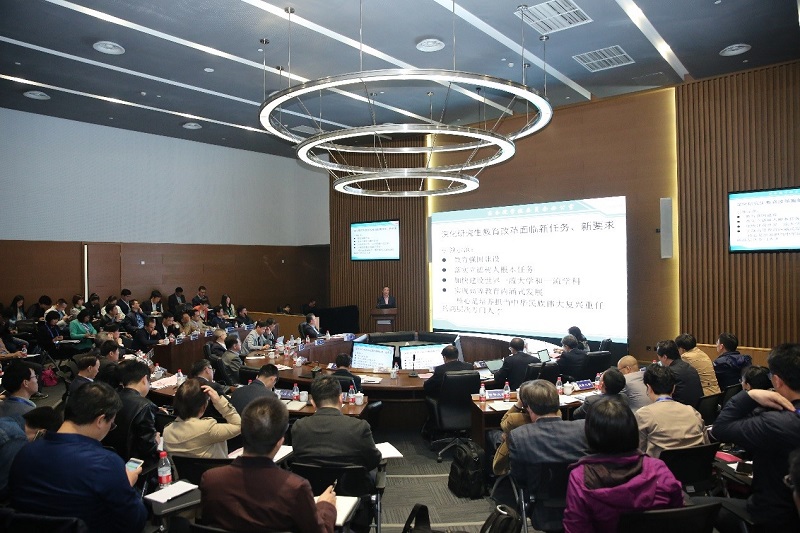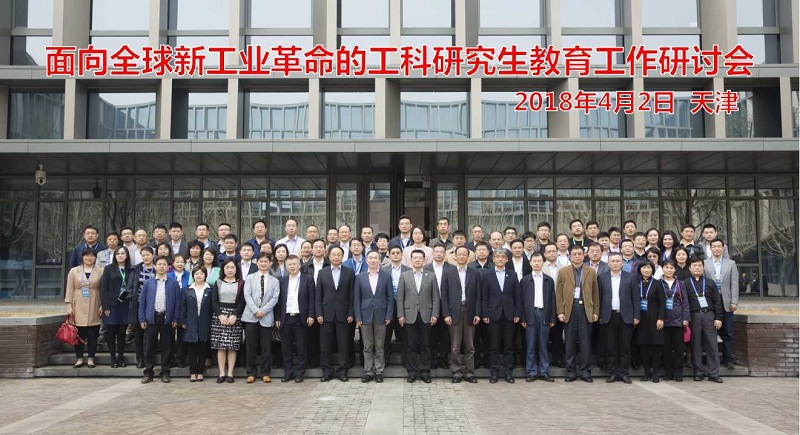
The seminar, “Postgraduate Engineering Education in the New Global Industrial Revolution” was held at Peiyangyuan Campus of Tianjin University on April 2, 2018 and included keynote speeches, university exchanges and a brief summary after discussion.
Tianjin University Vice President, Wang Shuxin in his opening remarks pointed out that the new industrial revolution has brought new opportunities and challenges to higher engineering education and postgraduate engineering education. It is necessary to promote reform of graduate engineering education with new ideas, resources, and approaches. As a result, we can train and provide competitive talented people for modern economic systems and development.
Vice Director of the Tianjin Municipal Education Commission, Bai Haili said that graduate education has achieved fruitful results in the past five years. Faced with the changes in the new era, we need to understand the demand for talent in the industrial sector with a more open mind. The convening of this seminar is an important embodiment of advanced engineering education catering to the changing times and is a timely adjustment of the talent cultivation model.
Tang Jiwei from the Ministry of Education stated that in the face of challenges and opportunities, postgraduate engineering education should focus on national strategic needs, deepen reforms, and gain the upper hand in higher education in terms of development.
Representatives from various universities delivered reports and exchanged information on the exploration of ideas for graduate engineering education reform in the context of the new industrial revolution.
Zheng Gang from Tianjin University said Tianjin University had seized the opportunity to improve the structure of disciplines in the field of artificial intelligence, to build a cross-disciplinary platform for industry demand, and create a “creativity-innovation-entrepreneurship" ecological chain.
During discussions, the participants reached an agreement on graduate education in the context of the new technological revolution and the new industrial revolution: 1. discipline is fundamental in supporting talent cultivation and the new industrial revolution provides the opportunity to restructure engineering postgraduate disciplines; 2. Universities need to boost cross -disciplinary integration and innovation, and the new engineering discipline structure should coincide with industrial demands; 3. Universities are required to further improve training reform between academic degree and professional degree graduate students, thus meeting the market demand with a new engineering talent structure; 4. We should continue to bring into play the characteristics of professional degree education and develop closer links with the industry; 5. We must promote collaborative talent training between the universities and enterprises and use the new training model to meet the new goal of training graduate engineering students; 6. At the same time, the reform of graduate training programs in the new era requires the timely solution of issues such as the updating of existing discipline names and codes, the improvement of supervisors engineering practice ability, and clarifying the interdisciplinary thesis quality standards.

The graduate schools of the universities that participated included: Graduate Schools of Tsinghua University, Beijing University of Technology, Beijing Institute of Technology, Tianjin University, Dalian University of Technology, Jilin University, Harbin Institute of Technology, Tongji University, Shanghai Jiao Tong University, Southeast University, China University of Mining and Technology, Hohai University, Zhejiang University, Hunan University, Central South University, Sichuan University, Chongqing University, Southwest Jiaotong University, Xi'an Jiaotong University, Northwestern Polytechnical University, and the China University of Mining and Technology (Beijing).
By: Yang Yan
Editors: Sun Xiaofang and Ross Colquhoun






